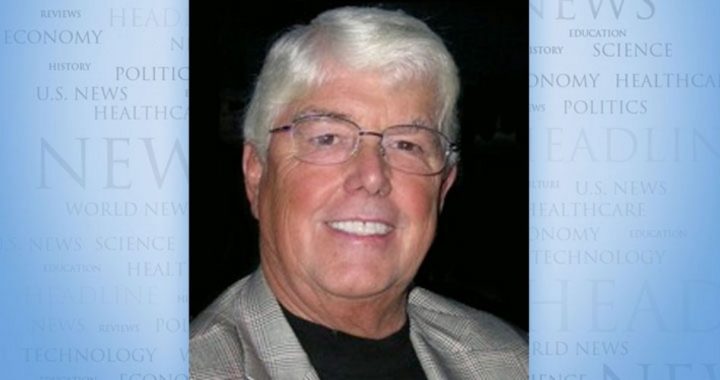
Thanks a lot, Congress. It looks like you’ve really stuck it to us again. This time, just sitting on your hands and doing nothing is going to cause the biggest tax increase in our nation’s history.
On February 18, the Washington Post reported:
On Dec. 31, the George W. Bush-era tax cuts are scheduled to expire, raising rates on investment income, estates and gifts, and earnings at all levels…. The Social Security payroll tax will pop back up to 6.2 percent from 4.2 percent…. And new Medicare taxes enacted as part of President Obama’s health-care initiative will for the first time strike high-income households.
The potential shock to the nation’s pocketbook is so enormous, congressional aides have dubbed it “Taxmageddon.”
Taxmageddon won’t be the result of one massive new assault on our wallets. Instead, it will come from tax cuts expiring in seven categories, along with new tax increases taking effect because of ObamaCare.
The biggest of the bunch will come from the expiration of Bush tax cuts that were passed in 2001 and 2003. At the time, proponents argued that the only way to get enough Democrats to support the measures would be to include a cap on how long they would be in effect. As a result, our lawmakers agreed that the tax reductions would expire on December 31, 2012.
Although Democrats love to refer to the measures as “tax cuts for the wealthy,” the across-the-board tax cuts actually reduced taxes for almost everyone who paid any income tax. Some 60 percent of the benefits went to middle- and low-income taxpayers.
Curtis Dubay of the Heritage Foundation prepared a detailed analysis of the tax hikes that are about to hit us:
Almost 34 percent of the tax increase from Taxmageddon comes from the expiration of the 2001 and 2003 Bush tax cuts. These cuts are best known for reducing marginal income tax rates, but they also reduced the marriage penalty, increased the Child Tax Credit and the adoption credit, and increased tax breaks for education costs and dependent care costs.
In other words, they will impact just about everyone who pays any income taxes in this country.
We’re not talking about puny increases, either. Taxpayers at every level will be affected, with some of the greatest increases hitting people at the bottom of the ladder. For example, the lowest bracket is currently 10 percent. Beginning in January, it will jump to 15 percent — a 50 percent increase.
This “bracket creep” will affect every taxpayer. All of the existing brackets will go up at least 10 percent. Thus, 25 percent will become 28 percent; 28 percent becomes 31 percent; 33 percent climbs to 36 percent; and 35 percent rises to 39.6 percent. If you’re in the top tax bracket, congratulations! Your tax bracket just went up 13.14 percent.
That’s not all. Wait until you see what the new taxes in ObamaCare will do to you. I’ll get to those in a moment.
People who depend on savings and investments will be hammered even harder than wage earners. Right now, the maximum Federal tax rate on long-term capital gains is 15 percent. Starting next year, that will go up to 20 percent — a leap of 33 percent. Those collecting dividends will suffer even more: The maximum rate will skyrocket from the existing 15 percent to a hefty 39.6 percent. (Assets acquired after Dec. 31, 2000, and held for at least five years don’t get hit quite as hard.)
In other words, the thriftiest among us — the people who carefully managed their household budgets, saved some money for the future and invested those funds in stocks, bonds and CDs — will be hit the hardest. The government attack on savings makes it seem almost as though there is a scheme in Washington to punish senior citizens and make them more dependent on government.
Almost every wage earner in America will pay more in taxes when the payroll tax cuts are allowed to expire. In his 2009 State of the Union address, Barack Obama promised: “If your family earns less than $250,000 a year, you will not see your taxes increased a single dime.”
Well, guess what? It turns out he wasn’t quite telling the truth — something a lot of us have pointed out many times.
Also scheduled to expire is a temporary fix of the Alternative Minimum Tax. The AMT was originally sold to a skeptical public as a way to make sure “the rich” pay their fair share — which, of course, it never did. In 2013 it will scalp a lot more than the top 1 percent of taxpayers; current estimates indicate 34 million taxpayers will fall victim to it.
Remember the phase-out rules for itemized deductions? The big spenders in Congress came up with the bright idea of eliminating most of the credit high-income taxpayers got for deductions on mortgage interest, state and local taxes, and charitable giving. The phase-out was eliminated in 2010. But it will be back in full force next year, unless Congress acts before then.
By the way, don’t think that only “the rich” will be affected here, either. If you’re a married couple with an adjusted gross income of $175,000, better be prepared to lose a big bunch of the money you can deduct from your federal tax bill. If you’re married but filing separately, that ceiling drops to just $87,500 — a long way from Barack Obama’s $250,000 limit.
And here’s an even more frightening thought: The $500 billion in increased taxes that Uncle Sam wants to take from us in 2013 will just be the beginning. As our economy continues to grow, so will the impact of all these new and higher taxes.
Just because these tax increases don’t take affect for seven more months, don’t think we’re not feeling the effect today. As Dubay explains:
Although these tax increases will not start raising new revenue until next year, they are having a negative impact on the economy today. Families, businesses, and investors need to know how much tax they will pay in the future before making important economic decisions. The uncertainty caused by Taxmageddon means they are stuck in neutral while they wait for President Obama and Congress to act. This is slowing job creation and stopping many of the millions of unemployed Americans from going back to work.
So there you have it: higher taxes on all of us, plus fewer new jobs being created and an economy that just stumbles along, all because Congress refuses to act.
I hope you’ll remember this — and remind your neighbors about it — when it comes time to vote for a new Congress this November.
Until next time, keep some powder dry.
Chip Wood was the first news editor of The Review of the News and also wrote for American Opinion, our two predecessor publications. He is now the geopolitical editor of Personal Liberty Digest, where his Straight Talk column appears weekly. This article first appeared in PersonalLiberty.com and has been reprinted with permission.



